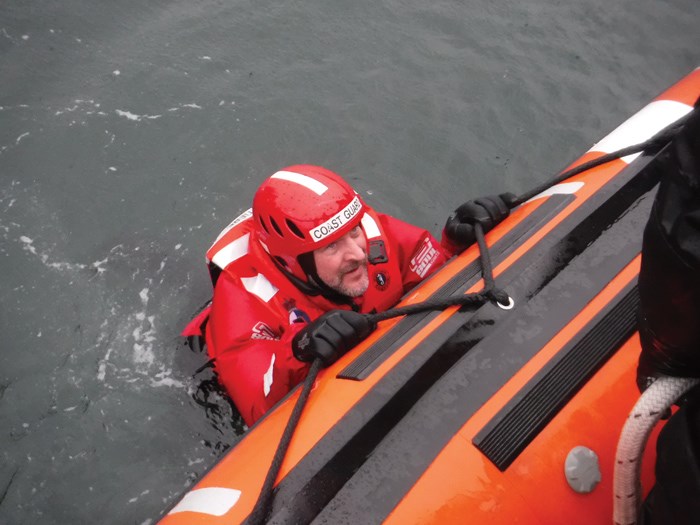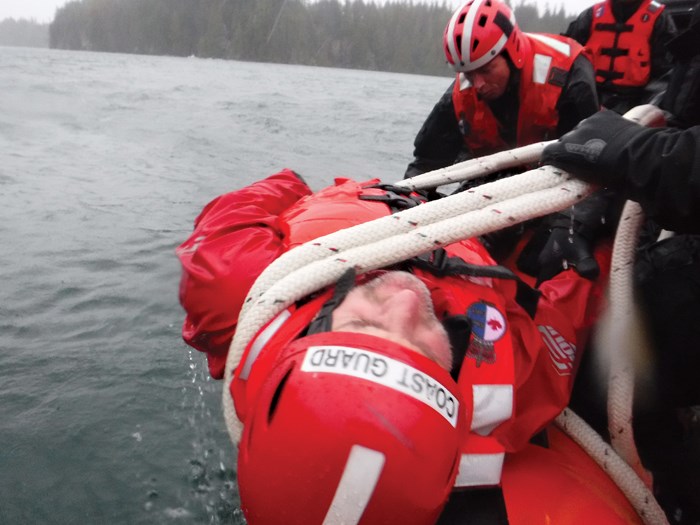Gibsons search and rescue station leader Neil Ripley has completed the Rigid Hull Inflatable Operator Training course (RHIOT) with the Canadian Coast Guard in Bamfield on Vancouver Island.
Ripley is the station leader for Royal Canadian Marine Search and Rescue (RCMSAR) station 14 in Gibsons. RHIOT is a seven-day course that covers all aspects of operating a fast rescue craft in challenging conditions.
“At night in restricted visibility, in adverse sea conditions – big waves, big winds – it was a challenging course,” Ripley said. “All our coxswains – the commanders of rescue vessels – go through this course.”
The course isn’t just for RCMSAR. Ripley said many organizations from all over the world send students to train at the Coast Guard facility in Bamfield. The military, Canadian Special Forces, the US Marines and law enforcement agencies like the RCMP send their people to be trained in RHIOT.

Major components of the course include two night missions.
“We do a classroom exercise to sketch out an itinerary that the instructors have set, and then we go on the water with a stopwatch and compass but no instruments, no radar, no charts and we have to safely navigate that mission in the dark,” Ripley said.
He added that they are allowed to use old-fashioned paper charts, but nothing electronic.
“You know how fast the boat goes, and you know which headings you want – you’ve got it all written down – and when you’ve met your time on the stop watch relative to the speed of the boat, you make your turns,” he said.
The objective is to get within about 180 metres of your destination on shore after travelling multiple miles in the dark.
“When you get within that 180-metre bubble you turn on the search light and you can see where you are,” Ripley said.
Students are allowed to use electronic navigation in the second night mission, but it’s a much longer operation.
“They want you to be capable of completing the mission, should the electronics fail,” Ripley said.
Ripley lives in Gibsons with his wife. They moved from Vancouver about three years ago. As an avid sailor, Ripley said he got involved with RCMSAR as a way to give back to the search and rescue community and get more involved on the Sunshine Coast.



